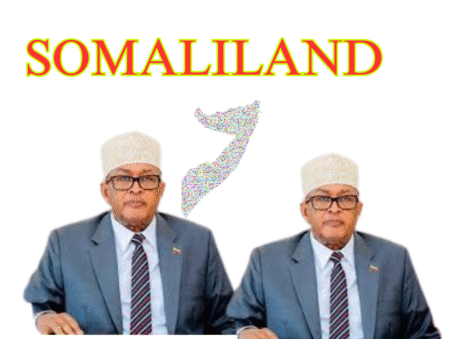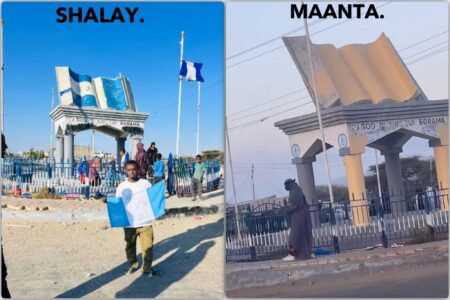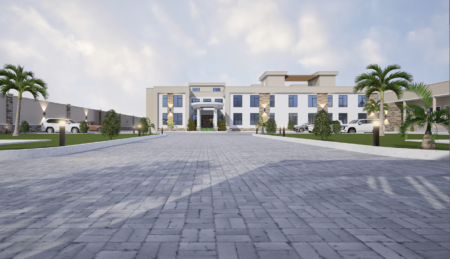Mogadishu tax burden. A major milestone was when the Somali Finance Minister revealed that the Somali government is now fully self-sufficient in financing government salaries solely through tax revenue. This milestone clearly represents a significant shift from depending on external subsidies and assistance and signals the beginning of a new phase in Somalia’s economic development. However, this announcement fails to address significant issues within the current taxation system, highlighting deeper systemic flaws and potential misrepresentation of Somalia’s economic reality.
Analysis and Argument
A thorough analysis of Somalia’s taxation system uncovers substantial imbalances that require immediate action. Presently, Mogadishu is the sole city contributing to federal taxes, and there is no established federal tax framework to ensure contributions from all federal states. This imposes an excessive burden on Mogadishu, particularly when tax increases are required, leading to an unfair situation that undermines the principles of fairness and equality. The current tax framework, which dates back to the military dictatorship era and was designed for a unitary state, no longer suits Somalia’s needs. With the country’s transition to a federal system, a revised and fair tax structure is required. Under the previous regime, the unitary state model centralized financial contributions and decision-making, while the federal system demanded a more decentralized and equitable approach to taxation.
A key issue with the current system is its unfair targeting of Mogadishu for federal tax contributions, resulting in an excessive tax burden on the city. This imbalance is not only unjust but also undermines the constitutional principles on which Somalia is built on. The Somali Constitution envisions a federal system in which resources and responsibilities are shared equitably across all regions. Consequently, it is crucial to implement a federal tax system that requires contributions from all federal states to ensure a fair distribution of tax burdens. In addition, the minister’s announcement fails to mention the crucial detail of the tax revenue’s origin. The reality that Mogadishu is the primary and exclusive contributor to the federal tax pool suggests a potentially deceptive narrative. Failing to recognize the strain on Mogadishu may mislead the public into thinking the tax system is more equitable and balanced than it truly is. The budget only reflects domestic revenue, which is exclusively sourced from Mogadishu. Even the minister failed to acknowledge or mention that this domestic revenue comes from Mogadishu, demonstrating a lack of respect and misleading the public about the true source of the funds.
Further, the minister also announced the implementation of a sales tax based on the 1984 tax law. This outdated law, a remnant from the military dictatorship era, does not align with Somalia’s present federal structure. Under this law, Mogadishu continues to be the main source of tax revenue, which worsens existing inequities. The residents of Mogadishu experience a severe shortage of essential services. Mogadishu city lacks free education, adequate infrastructure development, free healthcare, and sufficient security. Even though Mogadishu is the primary source of federal tax revenue, its residents do not experience corresponding benefits or improvements in their living conditions. Furthermore, Mogadishu suffers from inadequate political representation, as it lacks a dedicated Banadir state to represent its interests and hold it accountable. This significant gap underscores the pressing need for a reformed and fair tax system that guarantees equitable contributions from all federal states and ensures that revenue is used to deliver essential services throughout all regions.
The international tax system advocates for fairness, equity, and widespread contributions from all regions and sectors of the economy. Somalia can learn from global practices to develop a tax system that distributes the tax burden more equitably. International examples demonstrate that a balanced taxation approach, where all regions contribute according to their capacity, fosters more stable and cohesive governance structures. Somalia can prevent any single city or region from shouldering an excessive portion of the national tax burden by adhering to these principles
Conclusion
The Somali government’s success in becoming self-sufficient in covering salaries is impressive, but it is crucial to address the systemic issues within the taxation system to ensure sustainable development. The claims for self-sufficiency are misleading and unsustainable as the revenue is predominantly derived from Mogadishu city which has increased the tax burden on businesses and residents. Despite being the sole source of the tax revenue in Somalia, Mogadishu city still lacks access to essential services such as free education, infrastructure development, free healthcare and adequate security. This is unfair to the residents and businesses that have contributed significantly to the growth of tax revenue in Somalia.
For the government of Somalia to genuinely assert self-sufficiency, it must diversify its revenue sources across the entire country, ensuring that all regions contribute to and benefit from the economic resources necessary to sustain public services. Somalia must broaden its revenue sources beyond Mogadishu and implement comprehensive tax reforms that ensure a more equitable distribution of financial responsibilities and benefits across all regions. This can be achieved by creating a fair and comprehensive federal tax system which is crucial not just for economic efficiency, but also for promoting social justice and fostering national unity. Somalia can create a more balanced and prosperous future for all its citizens by ensuring equitable contributions from all federal states. Reforming Somalia’s tax laws to match its federal structure is crucial for enhancing national unity and economic stability. A well-structured federal tax system would ensure a more equitable distribution of the tax burden, reducing the strain on Mogadishu and supporting balanced economic growth throughout all regions. This reform is essential for ensuring that every region both contributes to and benefits from national resources, thereby reinforcing the country’s overall economic framework. Only through such fair and balanced reforms can Somalia achieve genuine and lasting progress.




